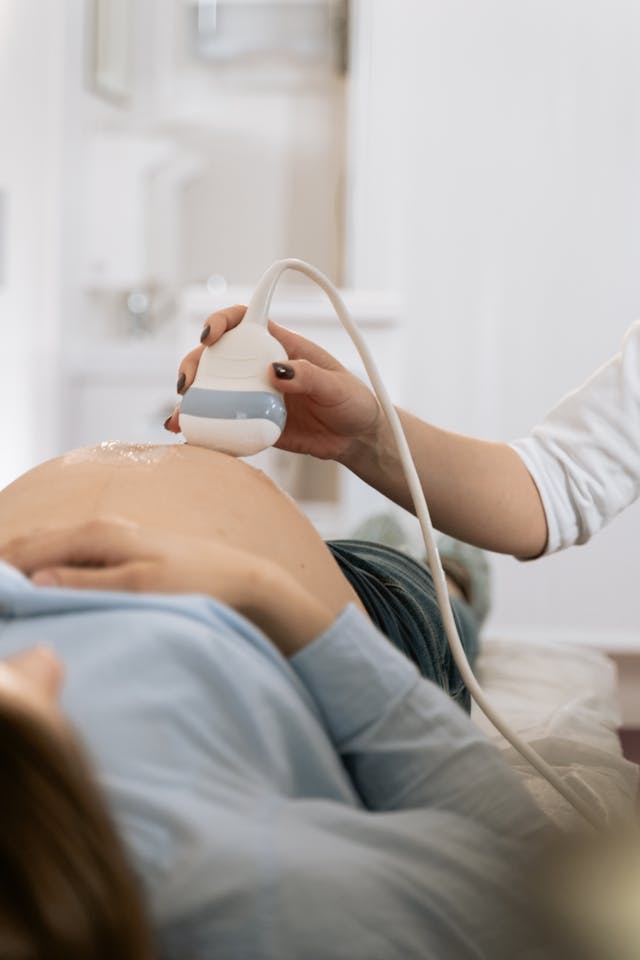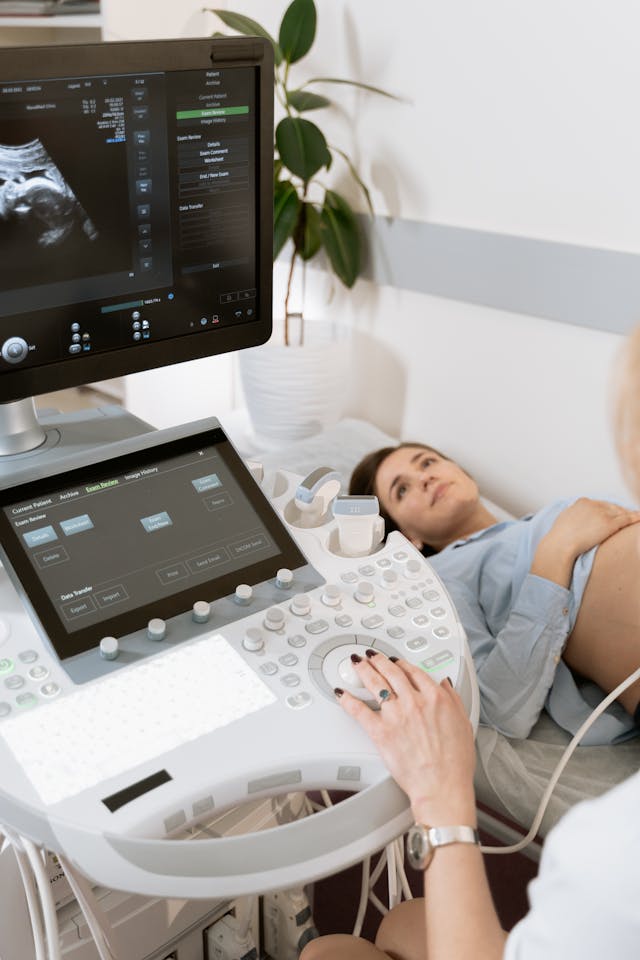Pregnancy induced hypertension (PIH) is an important health problem for pregnant women that occurs in about 7:10 % of pregnancies.
Pregnancy induced hypertension (PIH) or gestational hypertension is high blood pressure.
That occurs after 20 weeks of pregnancy and ends after the birth of an infant.
It may cause complications for both the pregnant and the fetus.
So it is important to monitor high blood pressure with your doctor during pregnancy.

What is hypertension?
It is the force of blood in the artery walls when blood pressure is higher than 140/90 mmHg (millimeters of mercury).
The normal blood pressure is generally considered to be 120/80 mmHg.
The first number is referred to the systolic blood pressure which means the pressure when your heart beats.
But the second number refers to the diastolic blood pressure, which indicates the pressure when the heart is relaxing.
Types of pregnancy-induced hypertension
Chronic hypertension
The pregnant blood pressure is high before pregnancy so this type continues after the birth of the baby.
Gestational hypertension
When the blood pressure is higher or equal to 140/90 mm Hg.
It begins after 20 weeks of pregnancy and ends after the birth of the fetus.
Preeclampsia
It is called toxemia too, doctors determine it when blood pressure is high and has excess protein in the urine.
It happens after 27 weeks of pregnancy and may lead to serious health problems with the kidneys, liver, breath, and the placenta.
Eclampsia
It is a severe form of preeclampsia, it happens when a pregnant woman has convolution
Symptoms of pregnancy-induced hypertension
Pregnant woman has to measure their blood pressure continuously.
There are other symptoms to notice that the blood pressure is high other than measure the blood pressure.
These symptoms are:
1. Edema, especially in the hands and feet.
2. Headache.
3. Nausea and vomiting.
4. Blurred vision.
5. Shortness of breath.
6. Abdominal pain.
7. Sudden weight gain.
8. Protein in the urine in case of preeclampsia.
Complications of pregnancy-induced hypertension
Blood pressure affects both the mother and the fetus and this effect differs from mild to severe.
On the fetus
High blood pressure reduces blood flow to the placenta which provides oxygen and nutrients to the baby.
The baby has less oxygen and nutrients, this leads to poor fetal growth or premature birth.
Premature birth affects the respiratory of the baby.
On the mother
Gestational hypertension may lead to eclampsia.
It is considered a severe form of pregnancy-induced hypertension (PIH) because it leads to seizures.
Severe high blood pressure may cause HELLP syndrome which is considered life-threatening.
Women with a high risk of pregnancy-induced hypertension
Most women who have high blood pressure during pregnancy are women with a family history of gestational hypertension.
Or have a history of gestational hypertension in their previous pregnancies.
Pregnant women who are under the age of 20 or over the age of 40 may be at risk of hypertension.
Health problems before pregnancy like diabetes and kidney disease increase the risk of gestational hypertension.
Also, first-time pregnant women and pregnant women expecting twins or more.
High stress levels can be a contributing factor to high blood pressure so support for pregnant women is so important.

Diagnosis of pregnancy-induced hypertension
Certainly, symptoms are important to notice high blood pressure but there are tests that physicians order.
These tests include:
1. Measurement of blood pressure.
2. Urine testing to check protein that is a sign of preeclampsia.
3. liver and kidney function.
4. Blood clotting tests.
5. Eye examination.
Treatment of pregnancy-induced hypertension
Treatment depends on the severity and the type of hypertension.
First bed rest at home or in the hospital for those with preeclampsia.
People at high risk should consider taking aspirin after 12 to 14 weeks of pregnancy.
Sometimes doctors don’t prescribe drugs for mild gestational hypertension but ensure that the case isn’t complicated.
In other cases, doctors prescribe medications like labetalol, hydralazine, and nifedipine which is considered first-line treatment for gestational hypertension and preeclampsia.
The doctor monitors the mother and the fetus to check their health including:
Doppler flow - an ultrasound technique that uses sound waves to measure blood flow through a blood vessel.
Laboratory testing of urine and blood.
Monitoring the growth and movement of the fetus and measuring his heart rate through non-stress testing.
Corticosteroids are administered to assist in the development of the fetus's lungs.
In the case of seizures from eclampsia, magnesium sulfate is considered the drug of choice.
In the last resort, if hypertension is not controlled with medications, it is necessary to deliver the baby.

How to avoid pregnancy-induced hypertension?
A healthy lifestyle is the best way to control your blood pressure especially because hypertension during pregnancy is unknown.
1. Eat healthy food like fruits, vegetables, grain breads, food with low salt and low-fat dairy.
2. Don’t smoke or drink alcohol.
3. Practice yoga, walk, and do some exercise to be a healthy weight during pregnancy.
4. Take a bed rest.
5. Take your vitamins like folic acid, calcium, and other parenteral vitamins regularly which may reduce high blood pressure and keep the baby healthy.
6. Take baby aspirin every day if you are at high risk of hypertension.
7. Llimit caffeine to no more than 200mg a day because a high level of caffeine increases blood pressure and heart rate.
8. Visit your doctor regularly to control your blood pressure and make sure you and your baby are in good health.
In conclusion, we discussed important topic that relate to pregnant women's health.
We know how to deal with pregnancy induced hypertension that happens after 20 weeks of pregnancy and its complications like preeclampsia and eclampsia.
Also, it is necessary to monitor the blood pressure with your doctor regularly to avoid these complications that affect both the mother and the fetus.
Read more about:
https://dewtreats.com/magnesium-deficiency-in-pregnancy-symptoms-and-treatment-1486


You must be logged in to post a comment.